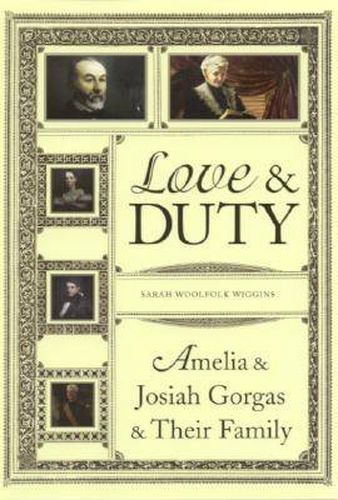Readings Newsletter
Become a Readings Member to make your shopping experience even easier.
Sign in or sign up for free!
You’re not far away from qualifying for FREE standard shipping within Australia
You’ve qualified for FREE standard shipping within Australia
The cart is loading…






Known respectively as the chief of the Confederate Ordnance Bureau and as the university librarian, Josiah and Amelia Gorgas were important members of the University of Alabama and regional communities. Their marriage spanned the Civil War and its aftermath and epitomized the Victorian concept of separate spheres for husband and wife. They were two strong personalities who deeply respected and complemented each other.
Love and Duty
focuses on the couple’s relationship as well as their relationships with other Gorgas family members. Because the large but close-knit family was highly literate and often separated, they produced an extraordinary quantity and quality of correspondence and related manuscripts that span three generations. Family members corresponded with each other almost daily. In these letters and in journals, they commented on contemporary events, gave advice, philosophized about life, death, love, marriage, parenting, war, and defeat. These thousands of documents provide a remarkable window into the private world of a 19th-century southern family. Wiggins examines Josiah’s and Amelia’s attitudes toward a vast range of topics, but most notably family, which was everything to the couple.
$9.00 standard shipping within Australia
FREE standard shipping within Australia for orders over $100.00
Express & International shipping calculated at checkout
Known respectively as the chief of the Confederate Ordnance Bureau and as the university librarian, Josiah and Amelia Gorgas were important members of the University of Alabama and regional communities. Their marriage spanned the Civil War and its aftermath and epitomized the Victorian concept of separate spheres for husband and wife. They were two strong personalities who deeply respected and complemented each other.
Love and Duty
focuses on the couple’s relationship as well as their relationships with other Gorgas family members. Because the large but close-knit family was highly literate and often separated, they produced an extraordinary quantity and quality of correspondence and related manuscripts that span three generations. Family members corresponded with each other almost daily. In these letters and in journals, they commented on contemporary events, gave advice, philosophized about life, death, love, marriage, parenting, war, and defeat. These thousands of documents provide a remarkable window into the private world of a 19th-century southern family. Wiggins examines Josiah’s and Amelia’s attitudes toward a vast range of topics, but most notably family, which was everything to the couple.